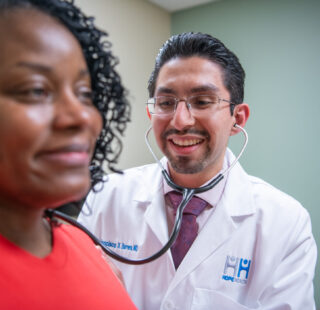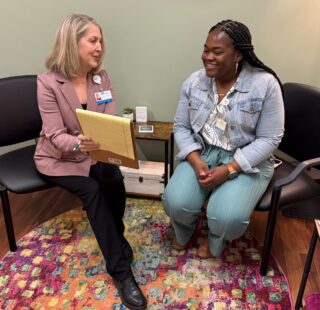- About Us
- For Patients
-
Services
Health Care Services
- Behavioral Health Services
- Chiropractic Care
- Chronic Disease Management
- Dental Health
- The Diabetes Institute
- Endocrinology
- Family Medicine
- Hepatitis Services
- HIV/ AIDS Services
- HopeXpress
- Infectious Diseases
- Internal Medicine
- Lab Services
- Language Services
- Pain Management
- Pediatric & Adolescent Care
- Pharmacy
- Primary Care
- Radiology
- Rheumatology
- School-based Services
- Senior Health
- Substance Use Treatment
- Telehealth
- Veterans Services
- Women's Health Services
Programs
-
Locations
Florence County
Darlington County
Williamsburg County
Clarendon, Orangeburg, & Aiken County
- Community
- Contact Us
- Become a Patient


Education
HopeHealth is uniquely positioned as a critical health workforce training partner and aims to strengthen all health workforce pipeline efforts in the region to help meet provider shortages and train the next wave of health care professionals serving our communities.

Research
HopeHealth is committed to research and sharing valuable insights in the field of medical research.